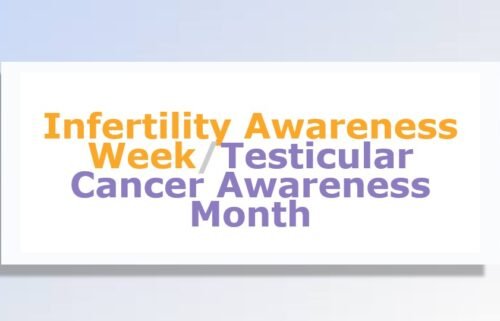Bill proposed by NY state senator would ban medically unnecessary surgeries on intersex children

Legislation that would effectively ban “medically unnecessary” surgeries on intersex children prior to their ability to give informed consent in New York will be announced Friday by state Sen. Brad Hoylman.
The measure, which would require that a patient issue informed consent prior to any procedure, will “protect intersex children from medical intervention and allow them to make these decisions for themselves when they are prepared to do so,” Hoylman said.
“These individuals should have autonomy over their bodies. But under the current legal construct, intersex people, as infants or children, can be forced to undergo irreversible surgeries that can cause physical pain and emotional distress later in their lives.”
“Intersex” is a term used for a variety of conditions in which a person is born with a reproductive or sexual anatomy and/or chromosome pattern that does not seem to fit the typical definitions of female or male. Many babies born intersex undergo surgery within the first few months of life to bring their bodies in line with a commonly accepted female or male appearance, according to extensive research conducted by Human Rights Watch.
Kimberly Zieselman, the executive director of interACT, an intersex advocacy group, supports the legislation.
“Genital normalizing surgeries such as clitoral ‘reductions’ and vaginoplasties instill deep shame and sexual trauma in young children when they cannot make a decision for themselves,” said Zieselman, who is an intersex woman.
“That these abuses of intersex youth continue after decades of advocacy proves the intensity of the shame and anti-LGBTQ bias at play. We are so grateful to Senator Hoylman for bringing New York to the right side of history.”
Zieselman was born with typically “male” XY chromosomes and internal testes, but she developed externally as a typical female. Doctors performed surgery on her when she was 15 years old to remove her internal testes without her knowledge or consent.
As a result, she said, she was forced into hormone therapy for the rest of her life.
When she was 41, she found out what had been done to her, and has since dedicated her professional life to requiring informed consent for such surgeries.
According to Human Rights Watch, surgeries on intersex patients can lead to damaged genital nerve endings and reduced sexual function, incontinence, and the need for lifelong hormone therapy. There is also chance that doctors and parents choose the wrong gender to assign to the child; there is no way to know which gender the infant would later identify as. HRW worked with interACT and interviewed hundreds of intersex patients, advocates, parents and physicians to produce a 2017 report on the subject, which came to these conclusions.
In a 2013 report, the United Nations Special Rapporteur on the right to health wrote that these medically-unnecessary surgeries should be postponed “until the child is sufficiently mature to provide informed consent” because they are especially “painful and high-risk procedure[s] with no proven medical benefits.”
Three former US Surgeons-General agreed, saying in July 2017, “these surgeries violate an individual’s right to personal autonomy over their own future.”
In its 2017 report, Human Rights Watch concluded that performing medically unnecessary genital surgeries on children before they are able to consent constitutes a fundamental violation of their human rights.
“These types of interventions can wait until someone is cognizant of what is happening to their own body,” Hoylman said.
However, some opponents of such legislation, including a similar bill proposed in California earlier this year, S.B. 201, argue that the decision as to what constitutes a medically necessary versus unnecessary surgery is too vague. The bill was shelved after opposition from a several groups, including the California Medical Association.
“We believe that limiting early surgical access has the potential to create negative outcomes for those in our community, so we are opposed to all legislation that broadly bans surgical options, as surgical decisions should be made between healthcare providers and families, not legislators,” said Dina Matos, the executive director of the CARES Foundation, an organization that supports patients with congenital adrenal hyperplasia (CAH), and their families.
CAH is a condition which can be life-threatening. It often falls under the umbrella term “intersex” because symptoms can include atypical genitalia.
Many patients with CAH do not identify with the term intersex, and prefer not to use it to describe themselves, according to CARES and HRW.
That includes Lesley Holroyd, 62, who was born with a life-threatening form of CAH. She says she underwent numerous genital surgeries as an infant and throughout her childhood, some medically necessary and others not, in addition to a significant number of medical treatments and medication regimes. She opposes legislation to ban medically unnecessary surgeries for children.
“I am female, I am biologically female, and it really upsets me… I don’t care if [my surgery] was cosmetic. I’m glad it was. Because I want to, when I look at my body I want to identify with it as my gender,” Holroyd said.
Proponents of the legislation understand this desire, and want to preserve the option of surgery for teens of consenting age and adults. Hoylman and interACT say they don’t want to ban the surgery entirely, but instead wait for informed consent.
The Societies for Pediatric Urology (SPU) has also long opposed such legislation in the past. During the debate about the California legislation, SPU President Dr. Lane Palmer issued a statement that read, in part, “Each of our patients is unique. The decision of what is ‘medically necessary’ is different for each patient. Proposals of a blanket ban on surgery would not only threaten the care of children with intersex conditions by denying access to surgery by erroneously deeming it ‘unnecessary,’ but it would even deny surgery to infants and children without intersex conditions who would be placed inadvertently under an overarching umbrella of legislative proposals.”
The SPU did not respond to requests for comment.
This is a common criticism, sometimes going as far as alleging that the legislation would ban circumcision.
However, Hoylman says his bill “clearly defines what is a medical necessity and it is limited to treatment or intervention on sex characteristics, which is laid out very clearly in terms of what kinds of procedures” would qualify.
“No legislation, I think, is going to harm anybody,” said Dr. Ilene Wong Gregorio, a practicing urologist and interACT board member. “If a procedure was truly necessary, of course, if it was lifesaving, if it would actually alleviate (physical) suffering and infection,” it would not be banned under such legislation, she said.
Another common argument against such legislation from groups including CARES and the SPU is that it removes a parent’s right to make medical choices on behalf of their children.
“Parents don’t own their children,” said Hoylman. “They protect them and guide them into adulthood. And I believe this legislation will enshrine that important concept into law that your child, to the extent possible, should have control over their own bodies and should not be subject to irreversible medical procedures that may not comport with their identity later in adulthood.”




